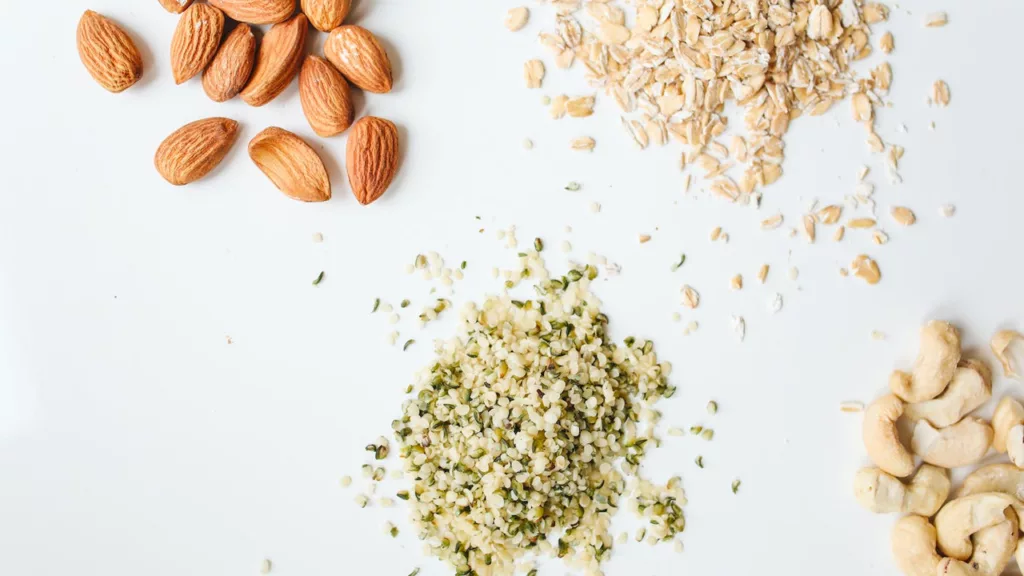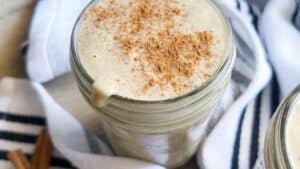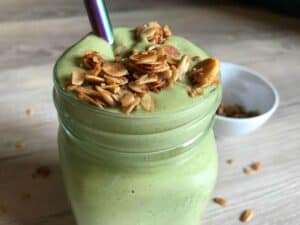Looking for Plant Based Milk Alternatives? Milk, the white liquid that comes from cows, is a staple in many people’s diets. But for those who are vegan or lactose intolerant, traditional cow’s milk is off the table.
Plant-Based Milk Alternatives Quick Reference Chart
In this chart, we’ll take a closer look at the different types of plant-based milk, their flavors, and their texture, so you can make an informed decision on which one to try.
| Milk | Flavors | Texture | Protein (per 100ml) | Carbohydrates (per 100ml) | Fat (per 100ml) |
|---|---|---|---|---|---|
| Soy Milk | Plain, Vanilla, Chocolate | Creamy, Smooth | 3-4g | 2-5g | 2-4g |
| Almond Milk | Plain, Vanilla, Chocolate | Light, Thin | 0.5-1g | 1-2g | 2-3g |
| Oat Milk | Plain, Vanilla | Creamy, Thick | 1-2g | 4-8g | 2-4g |
| Coconut Milk | Plain, Vanilla | Creamy, Thick | 0.5-1g | 2-5g | 5-8g |
| Rice Milk | Plain | Light, Thin | 0.2-1g | 2-4g | 1-2g |
| Hemp Milk | Plain | Creamy, Smooth | 2-3g | 1-2g | 3-4g |
| Pea Milk | Plain, Vanilla | Creamy, Smooth | 2-3g | 2-3g | 2-3g |
| Cashew Milk | Plain, Vanilla | Creamy, Smooth | 0.5-1g | 2-5g | 2-4g |
| Flax Milk | Plain | Creamy, Smooth | 0.5-1g | 2-5g | 2-4g |
| Macadamia Milk | plain | Creamy, Smooth | 0.5-1g | 2-5g | 2-4g |
| Hazelnut Milk | plain | Creamy, Smooth | 0.5-1g | 2-5g | 2-4g |
| Quinoa Milk | plain | Creamy, Smooth | 0.5-1g | 2-5g | 2-4g |
| Potato Milk | plain | Creamy, Smooth | 0.5-1g | 2-5g | 2-4g |
| Pumpkin Milk | plain | Creamy, Smooth | 0.5-1g | 2-5g | 2-4g |
| Sesame Milk | plain | Creamy, Smooth | 0.5-1g | 2-5g | 2-4g |
| Sunflower Seed Milk | plain | Creamy, Smooth | 0.5-1g | 2-5g | 2-4g |
| Banana Milk | plain | Creamy, Smooth | 0.5-1g | 2-5g | 2-4g |
| Tiger Nut Milk | plain | Creamy, Smooth | 0.5-1g | 2-5g | 2-4g |
| Sorghum Milk | plain | Creamy, Smooth | 0.5-1g | 2-5g | 2-4g |
| Peanut Milk | plain | Creamy, Smooth | 0.5-1g | 2-5g | 2-4g |
| Barley Milk | plain | Creamy, Smooth | 0.5-1g | 2-5g | 2-4g |
Vegan Milk Substitutes
Thankfully, there are a plethora of plant based milk alternatives available on the market today. Each with its unique flavor, texture, and nutritional profile. In this post, we’ll explore the world of milk alternatives, diving into the different types available and their uses, so you can choose the perfect milk substitute for you.

Soy Milk: The OG Plant-Based Milk
First up, we have soy milk. Soy milk is made from whole soybeans, and is a popular choice among vegans because it is a good source of protein. It has a creamy, nutty taste that makes it a great substitute for cow’s milk in cooking and baking. Soy milk is also a good option for those who are lactose intolerant, as it is naturally lactose-free.
Almond Milk: A Nutty and Creamy Plant Based Milk Alternative
Next, we have almond milk. Almond milk is made from ground almonds and is a great option for those who are looking for a low-calorie milk alternative. It has a slightly sweet, nutty taste that makes it a great addition to smoothies and cereal. Almond milk is also a good source of vitamin E, which is great for skin health.
Oat Milk: The New Darling of the Plant-Based Milk World
Third on our list is oat milk. Oat milk is made from steel-cut oats and water and has a creamy texture and a slightly sweet, oaty flavor. It’s a great choice for those who are looking for a milk alternative that is high in fiber and protein. Oat milk also froths well, making it a popular choice for coffee and tea.
Rice Milk: A Light and Creamy Alternative
Another alternative is rice milk. Rice milk is made from milled rice, and has a sweet, creamy taste. It’s a good choice for those who have nut allergies, as it is made from rice and is thus nut-free. Rice milk is also a good option for those who are looking for a low-fat milk alternative.
Hemp Milk: A Nutritious and Earthy Plant-Based Alternative
Next, we have hemp milk. Hemp milk is made from hemp seeds and is a good source of omega-3 and omega-6 fatty acids. It has a nutty, slightly sweet taste and is a great choice for those who are looking for a milk alternative that is high in protein.
Coconut Milk: A Rich and Tropical Alternative
Made from the meat of coconuts, coconut milk is a creamy, rich milk alternative that is high in fat and has a distinct coconut flavor. It’s a great choice for use in cooking and baking, particularly in Asian and tropical-inspired dishes.
Cashew Milk: A Creamy and Nutty Alternative
Made from cashews, this milk alternative has a creamy, nutty flavor and is a good source of healthy fats. It’s a great choice for use in smoothies, soups, and sauces.
Flax Milk: A Nutty and Earthy Plant Based Milk Alternatives
Next Plant Based Milk Alternative is made from flax seeds. this milk alternative is high in omega-3 fatty acids and has a nutty, slightly sweet flavor. It’s a good choice for those who are looking for a milk alternative that is high in fiber and protein.
Pea milk: Sipping on Silk
Made from peas, this plant based milk alternative is high in protein and has a creamy, slightly sweet flavor. It’s a good choice for those who are looking for a milk alternative that is high in protein and is nut-free.
Hazelnut milk: Nuts for Non-Dairy, The Creamy Delight
Made from hazelnuts, this milk alternative has a rich, nutty flavor and is a good source of healthy fats. It’s a great choice for use in coffee, smoothies, and baking.
Quinoa Milk: The Protein-Packed Plant-Based Alternative
Made from quinoa, this milk alternative is high in protein and has a slightly sweet, nutty flavor. It’s a good choice for those who are looking for a milk alternative that is high in protein and is nut-free.
All these alternatives are worth trying and you can use them in any recipe you like, and experiment with different flavors to see which one you like the most.
In Conclusion To Plant-Based Milk Alternatives
In conclusion, Plant-Based Milk Alternatives offer a wide range of options for those who can’t or choose not to consume cow’s milk. Whether you’re looking for a high-protein option or a low-calorie alternative, there’s a milk substitute out there for you. Each alternative has its own unique flavor and nutritional profile, so be sure to try a few different types to find the perfect milk substitute for you. Don’t be afraid to get creative in the kitchen and experiment with different milk alternatives in your vegan cooking and vegan baking. Happy sipping!
Source For Plant Based Milk Alternatives
- The USDA National Nutrient Database: https://ndb.nal.usda.gov/
- The Vegan Society: https://www.vegansociety.com/resources/nutrition-and-health/nutrients/protein
- The Physicians Committee for Responsible Medicine: https://www.pcrm.org/
- The Academy of Nutrition and Dietetics: https://www.eatright.org/





Great information thank you loved the quick comparison chart! I have heard multiple things about almond milk not being the best plant milk alternative as it is not very sustainable in production. But I feel like what can you really eat or drink these days. But thank you for this article
Hi Ross, yes it is really difficult these day with so much information and you’re welcome, thank you for taking your time to read!
I drink mostly oat milk but have been wanting to try out some of these other milk substitutes.
Thanks for the feedback Darleen, i’m a big fan of coconut milk but it really depends on the recipe and the flavour that you are looking for. I hope you enjoy exploring some of these other milk alternatives!
I did not know how many milk alternatives there are. I guess you can really make a “milk” out of anything!
Hi Kristine, yes there are sooo many options it can be overwhelming. I personally have not tired all these plant based milks, but I love that there are lots of options for everyone.
This guide was excellent.
Thanks Jamie, glad you found it helpful!
I heard that the production of some of these plant based milks are not very good for the environment. But thank you for the detailed breakdown. Very helpful
Thank you for raising a thoughtful concern. It’s true that the environmental impact of plant-based milk production varies. Some options are indeed more sustainable than others. I’m glad you found the breakdown helpful. If you have any more questions or if there’s a particular aspect you’d like more information on, feel free to ask. Always happy to share insights!”